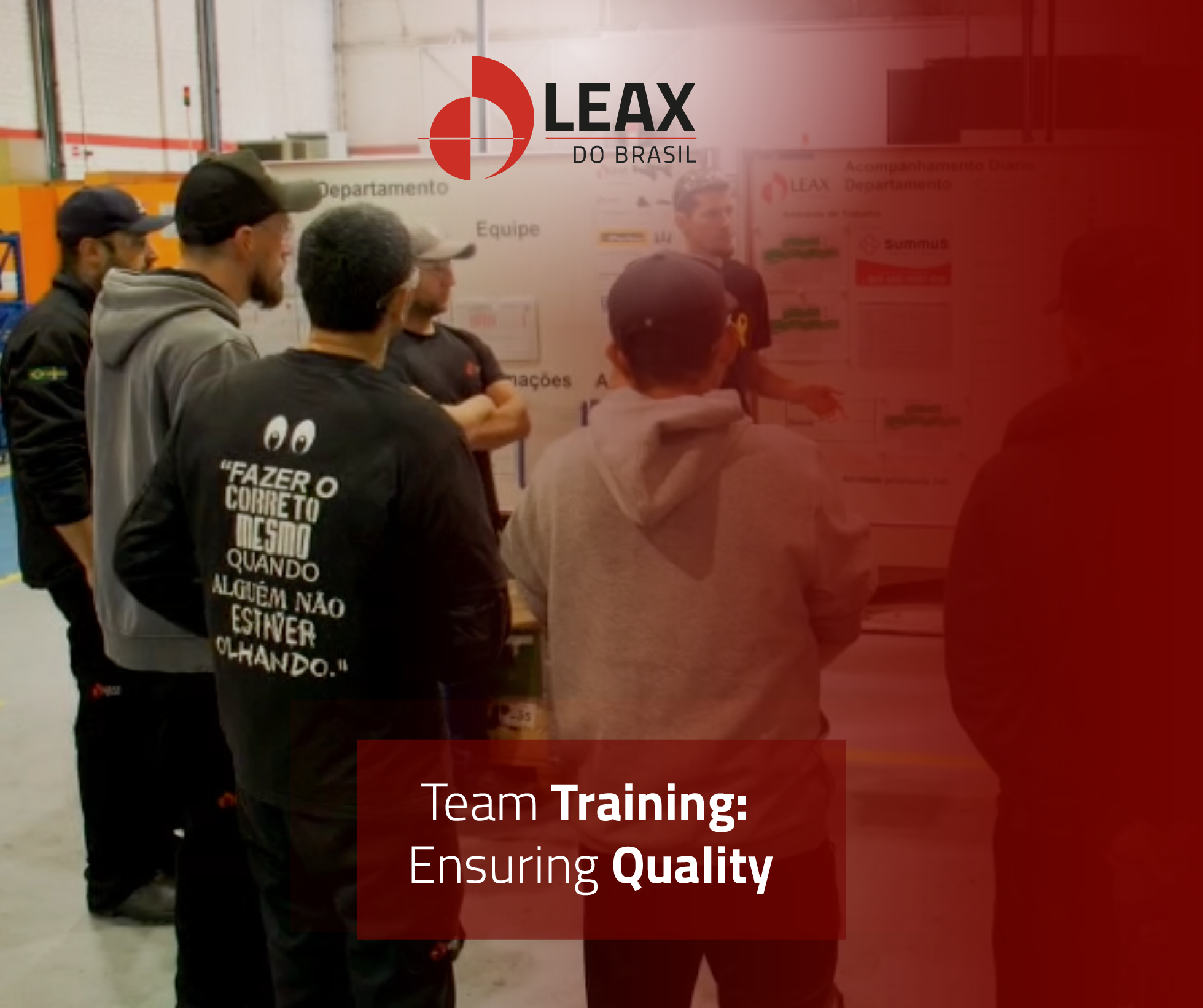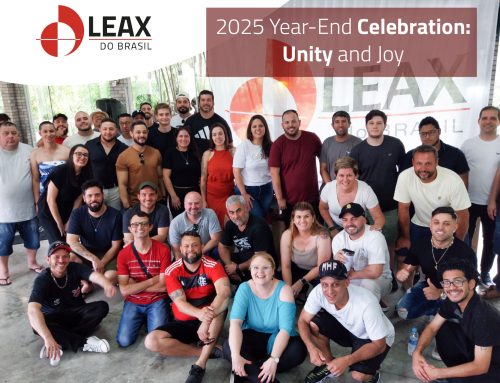In the heavy vehicle industry, the quality of automotive components is essential for the performance of trucks, tractors, and industrial equipment. The key to this excellence lies in team training. At Leax Brazil, continuous training is a cornerstone for delivering high-quality components, meeting the needs of managers in the automotive, agricultural, and mining industries, as well as agricultural equipment owners who rely on reliable parts.
Why Team Training is Crucial
Team training is a strategic investment that boosts automakers’ competitiveness. Well-trained teams produce automotive components with precision, reduce errors, and enhance safety, benefiting industries and end-users. According to the Brazilian Association of Training and Development (ABTD), 94% of Brazilian companies invest in training annually, with returns of up to 200% in productivity within six months. For managers, training means more efficient production lines and components that meet international standards. For end-users, trained teams ensure parts, such as crosses and gears, that withstand extreme conditions, reducing unexpected downtime. Leax Brazil, with its expertise in components for heavy vehicles, prioritizes training to deliver quality and reliability.
Types of Training Adopted by Leax
Automakers implement various training programs to optimize production:
* Technical Training: Teaches CNC machining and heat treatment processes, ensuring precision in manufacturing gears and crosses.
* Workplace Safety: Focuses on standards like NR-12, reducing accidents during the assembly of automotive components.
* Emerging Technologies: Prepares teams for Industry 4.0, including automation and artificial intelligence, essential for electric vehicle components.
* Preventive Maintenance: Trains workers to inspect parts, identifying wear before it causes failures.
* Sustainability: Aligns teams with green manufacturing practices, such as renewable energy use (I-REC Certificate), reinforcing the Clima Paraná Seal Standard A (2024).
These programs ensure that Leax’s automotive components are produced with high quality, benefiting industries and end-users.
Practical Tips
To effectively manage and train teams, companies can adopt these strategies:
• Plan Ongoing Programs: Schedule regular training cycles, such as quarterly workshops, to keep teams updated. Example: Leax uses programs like Convenia Academy for annual refresher training.
• Embrace Mobile Learning: Offer online courses and videos accessible on smartphones, allowing operators to learn across different shifts. This is ideal for training teams on new technologies, like automation systems.
• Prioritize Safety: Conduct accident simulations and practical NR-12 training to minimize risks, such as errors in cross assembly.
• Foster Innovation: Create continuous improvement groups where teams suggest process enhancements, like optimizing gearbox production.
• Align with Sustainability: Train teams in eco-friendly practices, such as material recycling, to meet certifications like ISO 14001.
• Measure Impact: Use metrics like error reduction (e.g., 20% fewer gear defects) or ROI (e.g., 150% in six months) to evaluate training.
• Engage Teams: Offer incentives, like bonuses for course completion, to boost participation, as Leax does with internal programs.
These tips ensure skilled teams, resulting in reliable automotive components that meet the demands of truck drivers and farmers.
Benefits of Training
Training delivers clear advantages:
• Productivity: Skilled teams reduce production time, such as in gear machining, boosting efficiency.
• Safety: Proper standards prevent accidents, protecting workers and avoiding stoppages.
• Quality: Components assembled by trained teams have fewer defects, benefiting industries and end-users.
• Innovation: Training in Industry 4.0 enables development of electric vehicle parts, as showcased by Leax at IAA Transportation 2024.
• Retention: Valued employees stay longer, reducing hiring costs.
• Customer Trust: Reliable components, like crosses, ensure fewer failures for truck drivers and farmers.
Challenges and Solutions
Training faces challenges:
• Cost: Training requires investment. Solution: Calculate ROI, as Leax does, seeing up to 200% returns in productivity.
• Resistance to Change: Employees may resist new technologies. Solution: Offer practical, gamified training.
• Knowledge Retention: Continuous learning is needed. Solution: Use digital platforms for ongoing reinforcement.
• New Demands: Electric vehicles require new skills. Solution: Train teams in lighter transmission systems.
Leax Brazil in 2025
Leax aligns its training with global trends:
• Automation: Trains teams for automated systems, enhancing production precision.
• Electric Vehicles: Prepares workers for optimized components, as showcased at IAA Transportation 2024.
• Sustainability: Educates teams on green practices, aligned with the Clima Paraná Seal and I-REC.
• Digitalization: Uses mobile learning for accessible training, tailored to different shifts.
These efforts ensure high-quality automotive components, benefiting industries and end-users
Tips for Truck Drivers and Farmers
• Choose Reliable Suppliers: Opt for automakers like Leax, with trained teams ensuring durable parts.
• Perform Preventive Maintenance: Inspect components regularly to avoid failures, trusting Leax’s quality.
• Join Training: Attend shop or manufacturer courses to understand component maintenance.
Team training is essential for automakers to produce high-quality automotive components, benefiting automotive, agricultural, and mining industries, as well as truck drivers and farmers. With practical strategies like ongoing programs and mobile learning, Leax Brazil ensures skilled teams deliver quality and innovation.
Talk with us
Questions? Make Contact: [email protected]








Leave A Comment